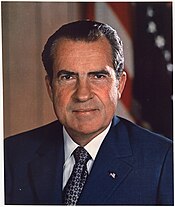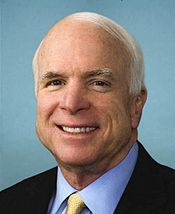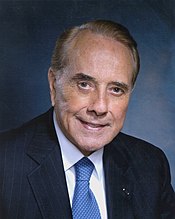Ripon Society
 |
|
| Formation | December 12, 1962 |
|---|---|
| Type | Public policy think tank |
| Legal status | Non-profit |
| Purpose | Advocacy |
| Headquarters | 1155 15th Street, NW, S-550 |
| Location | |
|
Region served
|
United States |
|
Membership
|
Private persons |
|
Official language
|
English |
|
President
|
Jim Conzelman |
| Affiliations | The Ripon Forum magazine |
|
Revenue (2014)
|
$3,448,349 |
| Expenses (2014) | $1,955,099 |
| Website | www |
| The Ripon Forum |
|---|
|
Two U.S. presidents and Republican presidential nominees have written guest articles in The Ripon Forum: President Richard M. Nixon |
The Ripon Society is an American centrist Republican public policy organization based in Washington, D.C. It produces The Ripon Forum, the U.S.'s longest running Republican thought and opinion journal, as well as The Ripon Advance, a daily news publication.
Founded in 1962 in Cambridge, Massachusetts, the Society's name comes from the 1854 birthplace of the Republican Party—Ripon, Wisconsin. Its main goals are to promote the following American ideas and principles: national security, low taxes, and a federal government that is smaller, smarter and more accountable to the people.
The Ripon Society's objectives are focused on an understanding within the Republican Party of public policies, ideas and actions that:
The Ripon Society was the first major Republican organization to support passage of the Civil Rights Act in the 1960s. In 1967, it advanced the concept of the "Negative Income Tax" as a means of ameliorating poverty in the U.S. with the simple expedient of the government's providing cash payments to families in need. The society's paper stated the program would help families rise up the income ladder, moving them from payment recipients to working taxpayers. In the early 1970s, it called for the normalization of relations with China, and the abolition of the military draft.
When many young people fear that their ideas cannot have an impact in American politics, the members of the Ripon Society have effectively proven otherwise. By thinking long and hard about public programs and by arguing its positions in a vigorous and reasonable manner, the Ripon Society has notably enriched our political dialogue.
...
Wikipedia




